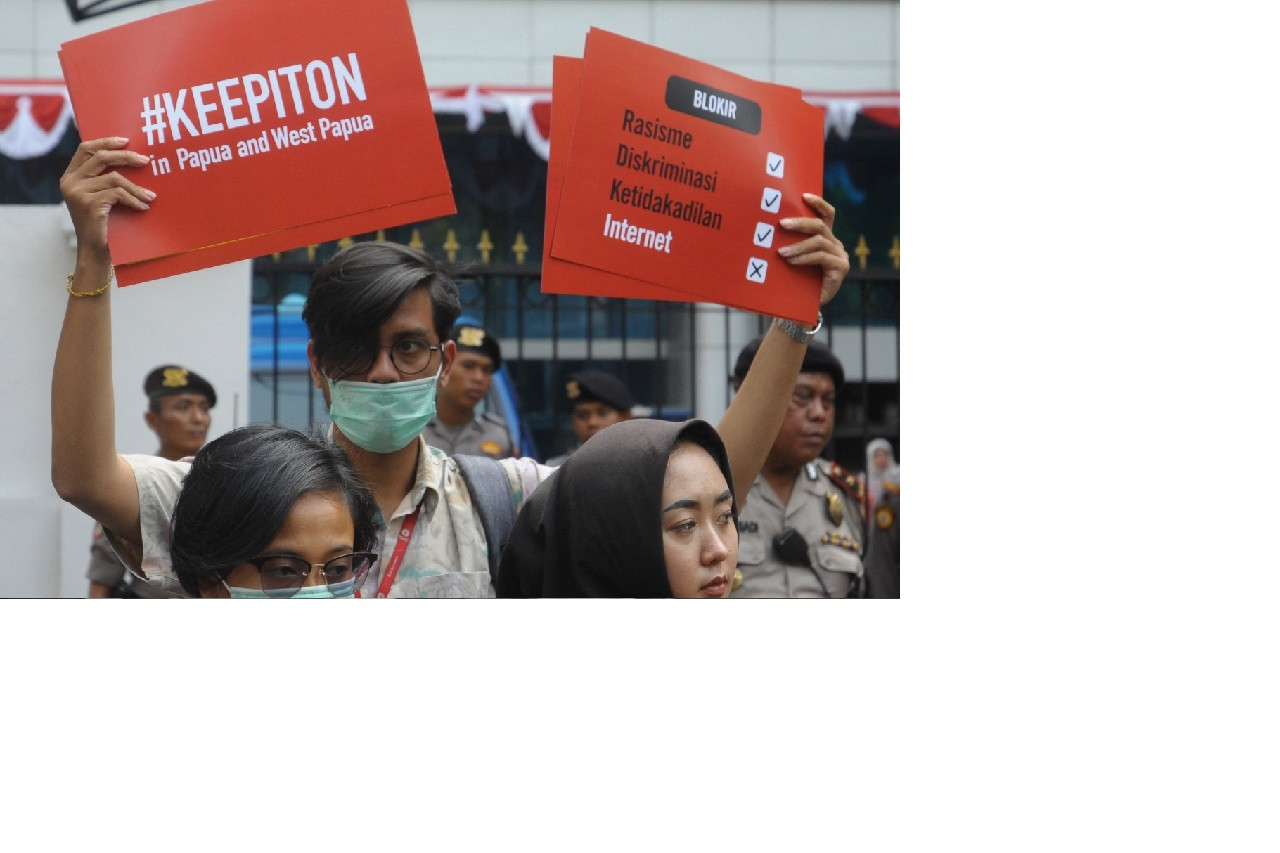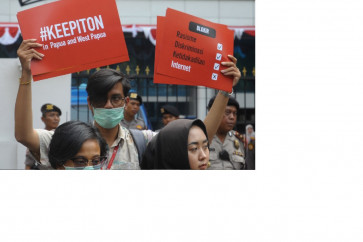Popular Reads
Top Results
Can't find what you're looking for?
View all search resultsPopular Reads
Top Results
Can't find what you're looking for?
View all search resultsThe state cannot on its own govern the entire internet
The memories of the public and civil society are filled with the government’s draconian digital history of internet blockages and blackouts.
Change text size
Gift Premium Articles
to Anyone
T
he Communications and Information Ministry has fulfilled its promise to block access to popular electronic service providers (ESPs) that failed to register under the contentious Ministerial Regulation No. 5/2020 on private ESPs.
International payments platform Paypal was the latest to fall prey to the regulation last week for failure to register with the ministry by the July 27 deadline. But due to mounting public complaints, the blockage was lifted temporarily from Aug. 1 to Aug. 5.
The uproar over the internet blockages is just the tip of the iceberg of controversy with regard to content moderation principles and data protection. One fundamental issue that the government needs to be aware of is that the internet cannot be governed alone – in this case by the government itself.
The licensing regime’s main intention is to create a “safe and productive digital space” by bonding ESPs to a set of content-moderating regulations that enable the government to order the removal of content that “incites unrest” or “disturbs public order” within 24 hours, or four hours if deemed urgent.
Notwithstanding the ambiguous wording in the regulation, the lack of due process and the virtually impossible amount of time for ESPs to comply with takedown requests, no amount of government goodwill is enough to attain such a goal without public support.
Such support has gone in the opposite direction with no less than 110,000 tweets with the #BlokirKominfo (Communications and Information Ministry Block) hashtag on Twitter over the weekend.
The public did not urge the non-compliant ESPs to “just register within the system and be done with it” like what the ministry might have hoped. Instead, the public has put the blame on the ministry for failing to come up with a mitigation strategy for services disrupted by the blockage.



















